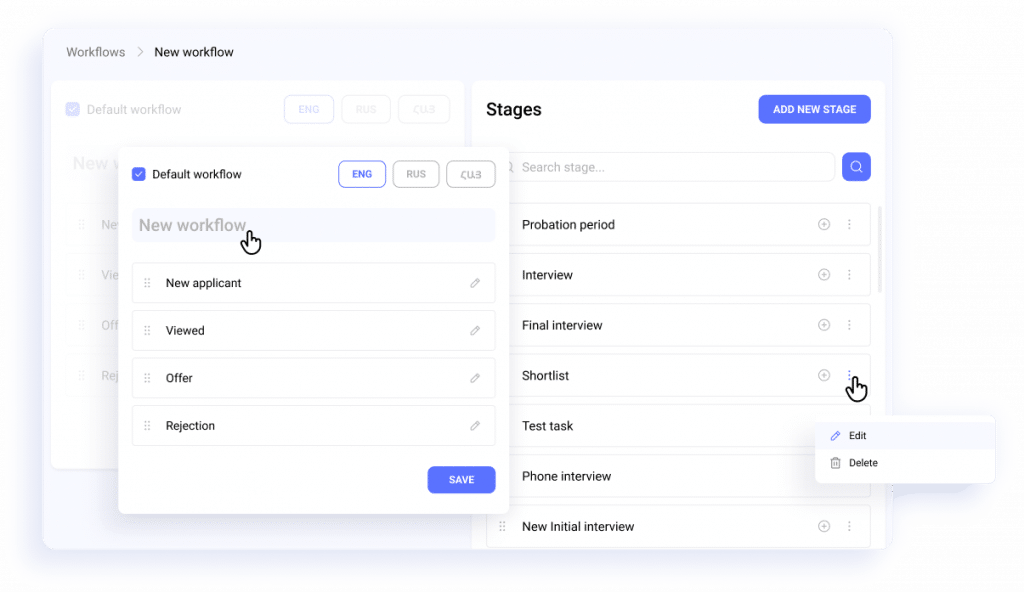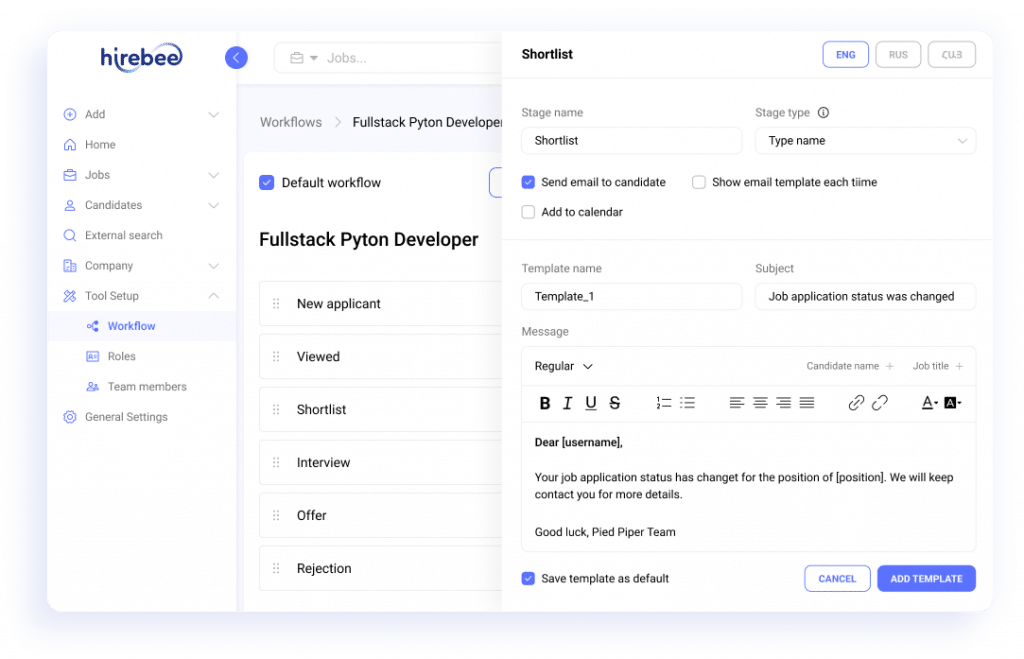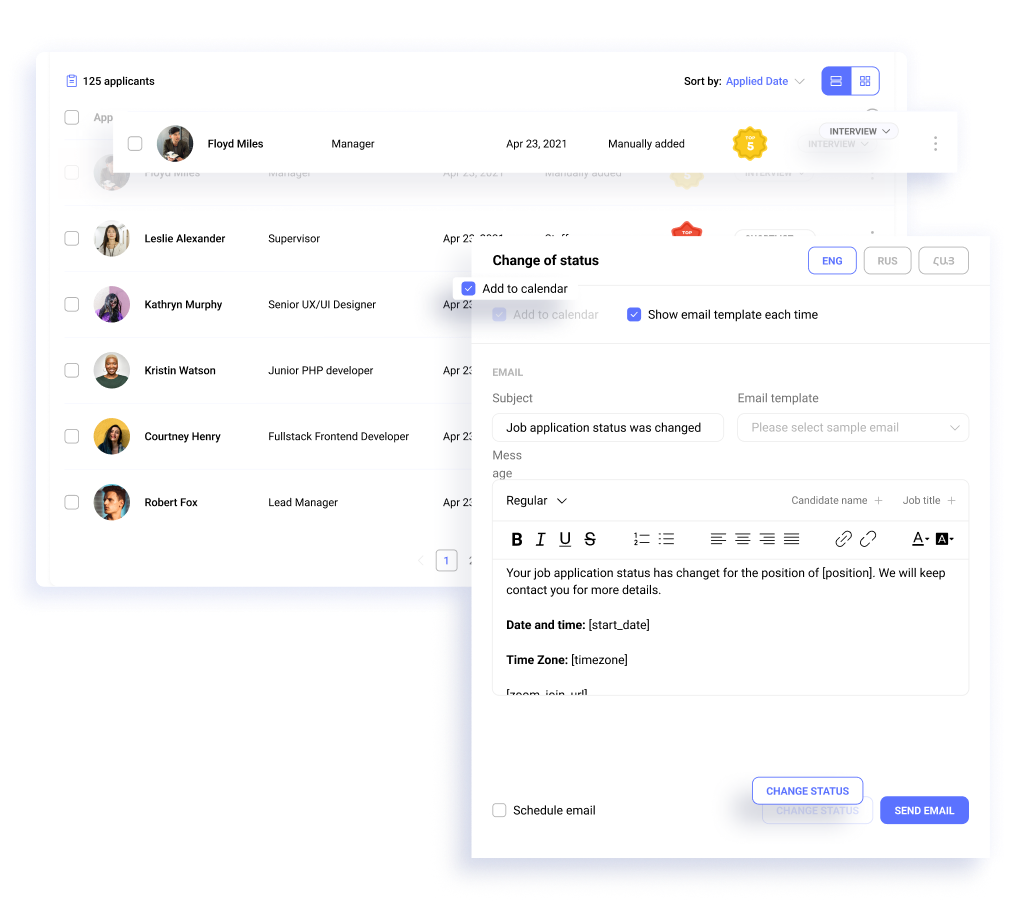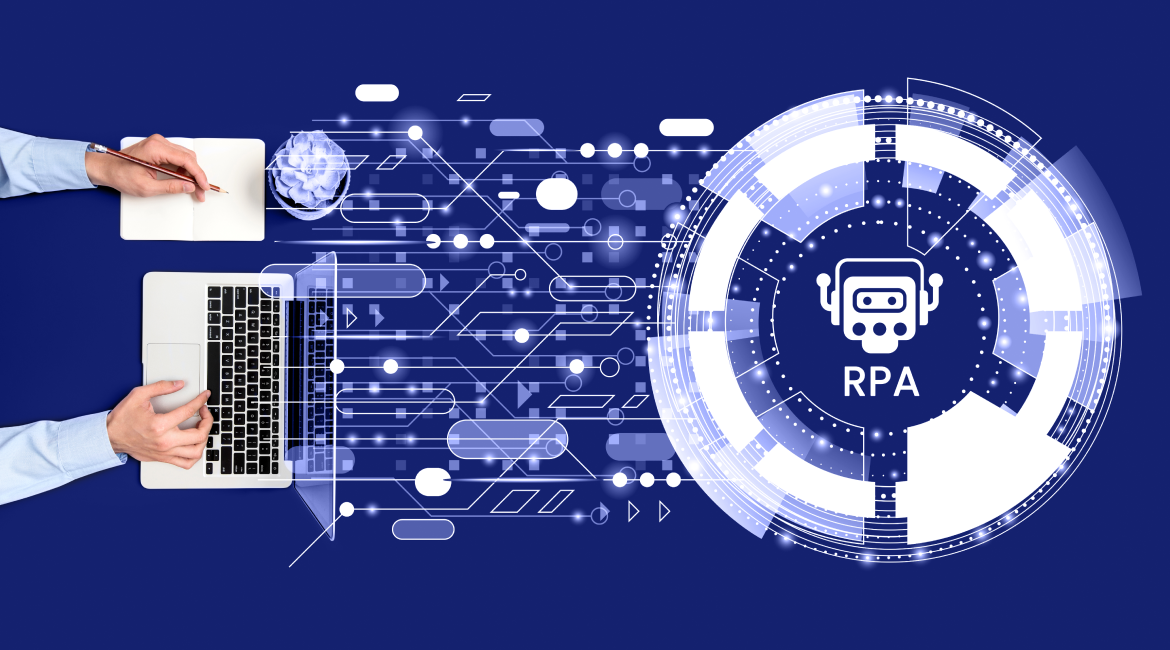Table of Contents
ToggleWhat is Recruitment Process Automation?
Recruitment Process Automation (RPA) refers to the use of technology to streamline and optimize hiring workflows by automating repetitive tasks such as resume screening, interview scheduling, and candidate communication. By leveraging artificial intelligence (AI) and machine learning (ML), automation tools can significantly reduce the time and effort required for recruiters to identify, engage, and hire top talent. This not only enhances efficiency but also minimizes human bias, leading to fairer and more data-driven hiring decisions.
Modern recruitment process automation solutions integrate with Applicant Tracking Systems (ATS) and HR software, allowing recruiters to manage job postings, candidate sourcing, and assessments from a centralized platform. These systems analyze vast amounts of applicant data to match job requirements with the most suitable candidates, improving the quality of hires. Additionally, automated workflows ensure that no crucial step is overlooked, reducing the risk of errors and delays in the hiring process.
Businesses that implement recruitment process automation gain a competitive edge by accelerating their time-to-hire while improving candidate experience. Automated email follow-ups, chatbot interactions, and AI-powered candidate ranking enable companies to maintain consistent and personalized communication at scale. As hiring needs continue to evolve, automation is becoming a key factor in building agile and high-performing recruitment strategies.
Why Automate Your Recruitment Process?
As organizations strive to attract top talent in an increasingly competitive job market, recruitment automation has emerged as a game-changer. Automating various aspects of the hiring process allows businesses to reduce manual effort, improve efficiency, and create a more structured approach to hiring. From screening resumes to scheduling interviews and managing candidate communications, an automated hiring system ensures a seamless recruitment experience for both recruiters and job seekers. Below, we explore key reasons why businesses should consider automation in recruitment to enhance their talent acquisition strategy.
Streamlining Recruitment Process
One of the biggest challenges in hiring is managing high volumes of applications while ensuring each candidate receives proper attention. Recruiting automation simplifies this by automatically filtering resumes based on predefined criteria, ranking candidates based on suitability, and even conducting initial assessments. By leveraging AI-powered screening tools, companies can significantly reduce the time spent on reviewing unqualified applications and focus on the most promising candidates. Additionally, automated interview scheduling eliminates the hassle of back-and-forth emails, allowing recruiters and candidates to select available time slots effortlessly. This level of efficiency not only speeds up the hiring process but also ensures that no potential candidate is overlooked due to human error.
Data-Driven Decision Making
Recruitment success depends on making informed, unbiased hiring decisions. Traditional hiring methods often rely on subjective assessments, which can lead to inconsistent results. With automation of the recruitment process, companies gain access to valuable hiring metrics and predictive analytics, helping them make smarter talent acquisition choices. AI-driven tools analyze patterns in hiring success, identify bottlenecks, and provide actionable insights to refine recruitment strategies. For instance, businesses can track the effectiveness of different job boards, measure candidate engagement levels, and assess the quality of hires over time. By relying on data instead of intuition, organizations can continuously optimize their hiring processes and ensure long-term success.
Reducing Administrative Burden
HR teams often spend countless hours on repetitive administrative tasks, such as sending interview reminders, updating applicant records, and coordinating between hiring managers. Implementing an automated recruitment solution eliminates these inefficiencies by handling routine tasks without manual intervention. Automated email responses, chatbot-driven candidate engagement, and AI-assisted document processing allow HR professionals to focus on strategic initiatives rather than being bogged down by paperwork. This not only improves overall workflow but also ensures that recruitment teams can dedicate more time to building relationships with candidates and enhancing employer branding efforts.
Enhancing Candidate Experience
In today’s job market, candidate experience plays a crucial role in attracting and retaining top talent. A slow or unresponsive hiring process can lead to frustration, causing candidates to abandon applications or accept offers elsewhere. Automation in recruitment enhances the candidate journey by providing timely updates, personalized communication, and a seamless application experience. Chatbots can answer candidate queries in real time, while automated status updates keep applicants informed at every stage. Furthermore, streamlined onboarding processes ensure that new hires have a smooth transition into their roles, boosting overall job satisfaction and retention rates.
Improving HR Productivity & Efficiency
HR professionals juggle multiple responsibilities, from talent acquisition to employee engagement and compliance management. By choosing to automate the recruiting process, companies can free up valuable time and resources, enabling HR teams to focus on high-impact tasks. Automated workflows ensure consistency across different hiring stages, reducing errors and miscommunication. Additionally, AI-powered tools can match job descriptions with suitable candidates faster than traditional methods, significantly improving the quality of hires. This increased efficiency translates to better alignment between business goals and workforce planning, ensuring that the right talent is brought in at the right time.
Cost Savings & ROI
Hiring inefficiencies can lead to high recruitment costs, lost productivity, and poor hiring decisions. By understanding how to automate the recruitment process, businesses can cut costs while maximizing return on investment (ROI). Automating key recruitment functions reduces dependency on external hiring agencies, lowers advertising expenses, and minimizes turnover rates by ensuring better candidate-job matches. Moreover, faster time-to-hire means that vacant positions are filled quickly, preventing revenue loss due to prolonged job openings. In the long run, companies that invest in recruitment automation benefit from a more agile, cost-effective, and scalable hiring strategy.
How to Automate the Recruitment Process Effectively?
Successfully implementing automation in hiring requires more than just adopting new technology. It demands a strategic approach that aligns with your company’s recruitment goals. Businesses must evaluate their recruitment workflows, identify inefficiencies, and integrate automation tools that enhance efficiency without compromising the human touch. By carefully planning each step, companies can ensure that their automated recruitment process is effective, scalable, and beneficial to both recruiters and candidates. Below are the key steps to automating recruitment effectively.
Identify Pain Points
Before implementing any automation solution, it is crucial to analyze your existing hiring process and pinpoint areas that cause delays or inefficiencies. Common pain points include excessive time spent on resume screening, scheduling conflicts, inconsistent communication with candidates, and difficulty tracking applicant progress. By mapping out the hiring workflow, HR teams can determine which tasks can be streamlined through recruiting automation, allowing them to allocate resources more efficiently. Additionally, gathering feedback from hiring managers and recruiters can provide insights into their challenges, ensuring that automation efforts address the most critical bottlenecks.
Choose the Right Tools
Selecting the right technology is essential for a successful automation of the recruitment process. Modern Applicant Tracking Systems (ATS), AI-driven resume screening software, and chatbots for candidate engagement all play a role in enhancing hiring efficiency. However, businesses must choose tools that integrate seamlessly with their existing HR technology stack and provide scalability as hiring needs evolve. When evaluating solutions, companies should consider features such as AI-powered candidate matching, automated interview scheduling, and data-driven analytics. Investing in an automated hiring system that aligns with company goals ensures long-term recruitment success while maintaining a positive candidate experience.
Customize Your Automation Workflow
Selecting the right technology is essential for a successful automation of the recruitment process. Modern Applicant Tracking Systems (ATS), AI-driven resume screening software, and chatbots for candidate engagement all play a role in enhancing hiring efficiency. However, businesses must choose tools that integrate seamlessly with their existing HR technology stack and provide scalability as hiring needs evolve. When evaluating solutions, especially hiring software for staffing agency use cases, companies should consider features such as AI-powered candidate matching, automated interview scheduling, and data-driven analytics. Investing in an automated hiring system that aligns with company goals ensures long-term recruitment success while maintaining a positive candidate experience.
Benefits of Recruitment Automation Process
Businesses can develop competitive advantages in recruitment in many ways: by providing prestige, employee benefits, flexible working hours, etc. These are all job offerings that present themselves as employee value propositions (EVP). Think of it as your unique selling point, but for your jobs. What makes your vacant position more valuable than other employers’?
However, there are two ways in which businesses can develop competitive advantages for their recruitment process. One is by developing an EVP, and developing a clear advantage when it comes to attracting candidates. The other is by developing a more effective recruitment funnel, which better identifies and hires the best candidates. The benefits of automating the recruiting process provide businesses with both types of competitive advantage, putting employers in a better position in the job market.
Developing a desirable candidate experience
For employers, the candidate experience is an all-important first step of the candidate journey, where they get their chance to leave a good first impression. The candidate’s journey begins way before the candidate has applied for the job position. It starts when the candidate first shows interest in the vacant job position, and the employer’s role in improving the candidate’s experience is optimizing the job description and career page.
However, the role of recruitment automation in improving the candidate experience is in screening and evaluating candidates. During the candidate screening and evaluation process, candidates are eagerly waiting for updates on their application status, and different employers will respond in different spaces. The way an employer can stand out from others is by providing faster updates on their application status and keeping the candidate engaged throughout the entire process.
Through recruitment automation software, communication with candidates can be facilitated with automated emails. Here’s how this works.
First, users should set up hiring workflows, which are comprised of the different hiring stages applicants are moved through. Users can set up multiple workflow templates, which are then assigned to different vacancies. The applicants for those vacancies can then be moved through those different hiring stages.

Then, each hiring stage will have an email template assigned to it. The purpose of these email templates is for users to be able to send them automatically as they change candidates’ application status (hiring stage). Hirebee also offers default email templates for you to use, but your templates are fully customizable.

Finally, upon changing the application status, emails can be automatically sent to candidates with a click of a button. Users can also choose to edit the email and personalize it if they wish. However, automatically sending emails to candidates without ever leaving their dashboard makes candidate relationship management extremely convenient for hiring teams, and gives them a competitive advantage by developing a recruitment process that keeps their candidates engaged.

More on why the candidate experience is important and using recruitment automation to improve candidate experience
Beating other employers to the first job offer
When it comes to beating other employers to a top candidate, a fast time to hire may be one of the most important performance metrics for your recruitment. Top candidates will not be on a job hunt forever, that is why it is monumental for businesses to be the first one to send a job offer to the best talent in the market.
Recruitment automation with a good applicant tracking system can decrease the time to hire by up to 20%, saving 33 hours per recruiter per week. Among the list of ways this is achieved, the most instrumental way is through automated candidate screening. With automated screening, businesses are able to automatically receive a ranking in their list of applicants from the most to the least relevant candidates. The ranking is based on an AI resume-matching algorithm, which compares the contents of the resumes with the posted job description. Based on the relevant factors mentioned in the job description, the resume matching algorithm then estimates which resumes match the job description the best with a ranking.
Through automated candidate screening, businesses can immediately gain indication as to which applicants are the best ones, and prioritize their tasks in order to establish communication with the top candidates from the get-go and personalize their candidate experience. With these insights, businesses gain a major competitive advantage by increasing the likelihood of beating other employers to the job offer.
Learn more about the list of ways recruitment automation reduces your time to hire >> The ultimate guide to recruitment automation – Hirebee
More effective recruitment funnel
Reducing the time to hire also significantly increases business cost savings by increasing recruitment efficiency and productivity. Recruiters no longer have to waste time performing mundane tasks that could be easily automated. Instead, more of their time is dedicated to performing creative tasks and problem-solving to attract and identify the best talent out there.
Furthermore, recruitment automation also presents itself as a means of enhancing recruitment efforts and making the candidate screening and evaluation processes more effective. Automated candidate screening can help reduce bias from the hiring process and generally add valuable insights to the candidate screening process, which can help yield a better result with higher quality shortlists.
Hirebee’s recruitment automation software also includes a reporting and analytics package to help businesses review and optimize their recruitment funnel along the way, with key recruitment metrics and invaluable insights. By leveraging AI and data, businesses can develop a perfectly optimized recruitment funnel and blow the competition out of the water.
Conclusion
Embracing automation in recruitment is no longer a luxury but a necessity for companies looking to stay competitive in today’s fast-paced hiring landscape. By leveraging advanced technology, businesses can streamline tedious tasks, improve decision-making with data-driven insights, and enhance the overall candidate experience. From resume screening to interview scheduling and personalized communication, automation allows HR teams to focus on strategic aspects of talent acquisition rather than being overwhelmed by administrative burdens. As a result, organizations can reduce time-to-hire, improve hiring quality, and optimize recruitment costs.
However, the key to successful implementation lies in careful planning and execution. Identifying pain points, selecting the right tools, and customizing automation workflows ensure that companies strike the right balance between efficiency and human engagement. As hiring needs continue to evolve, businesses that integrate automation effectively will gain a long-term competitive advantage, attracting top talent faster and building stronger, more agile teams. By adopting smart recruitment automation strategies today, organizations can future-proof their hiring processes and drive sustainable growth.









